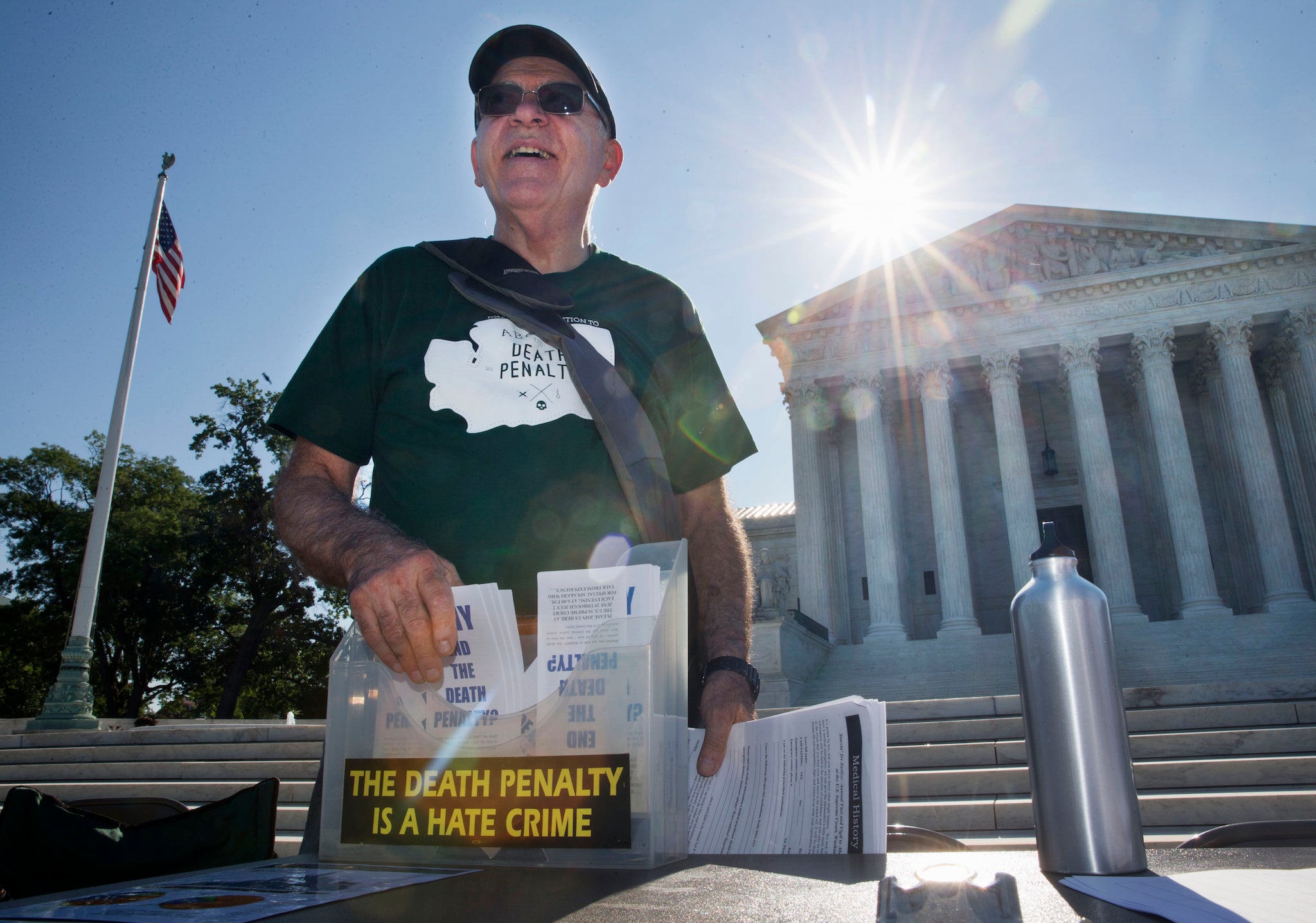US Supreme Court says drug used in botched executions is constitutional
The justices ruled 5-4 that sedative midazolam can be used in executions without violating the Eighth Amendment

Your support helps us to tell the story
From reproductive rights to climate change to Big Tech, The Independent is on the ground when the story is developing. Whether it's investigating the financials of Elon Musk's pro-Trump PAC or producing our latest documentary, 'The A Word', which shines a light on the American women fighting for reproductive rights, we know how important it is to parse out the facts from the messaging.
At such a critical moment in US history, we need reporters on the ground. Your donation allows us to keep sending journalists to speak to both sides of the story.
The Independent is trusted by Americans across the entire political spectrum. And unlike many other quality news outlets, we choose not to lock Americans out of our reporting and analysis with paywalls. We believe quality journalism should be available to everyone, paid for by those who can afford it.
Your support makes all the difference.The United States Supreme Court has upheld the use of a drug which has been used in several botched executions on Monday morning.
The justices ruled 5-4 that sedative midazolam can be used in executions without violating the Eighth Amendment, which prohibits cruel and unusual punishment.

Justice Sonia Sotomayor wrote the dissent, questioning the use of the drug.
"Under the court's new rule, it would not matter whether the state intended to use midazolam, or instead to have petitioners drawn and quartered, slowly tortured to death, or actually burned at the stake."
However, in the conservative majority, Justice Samuel Alito said that arguments against the drug's efficacy were speculative at best.
"The dissent's resort to this outlandish rhetoric reveals the weakness of its legal arguments."
In 2014, Clayton Lockett regained consciousness during his execution in Oklahoma. In similar Ohio and Arizona cases, prisoners reportedly regained consciousness and choked for long periods of time.
Join our commenting forum
Join thought-provoking conversations, follow other Independent readers and see their replies
Comments